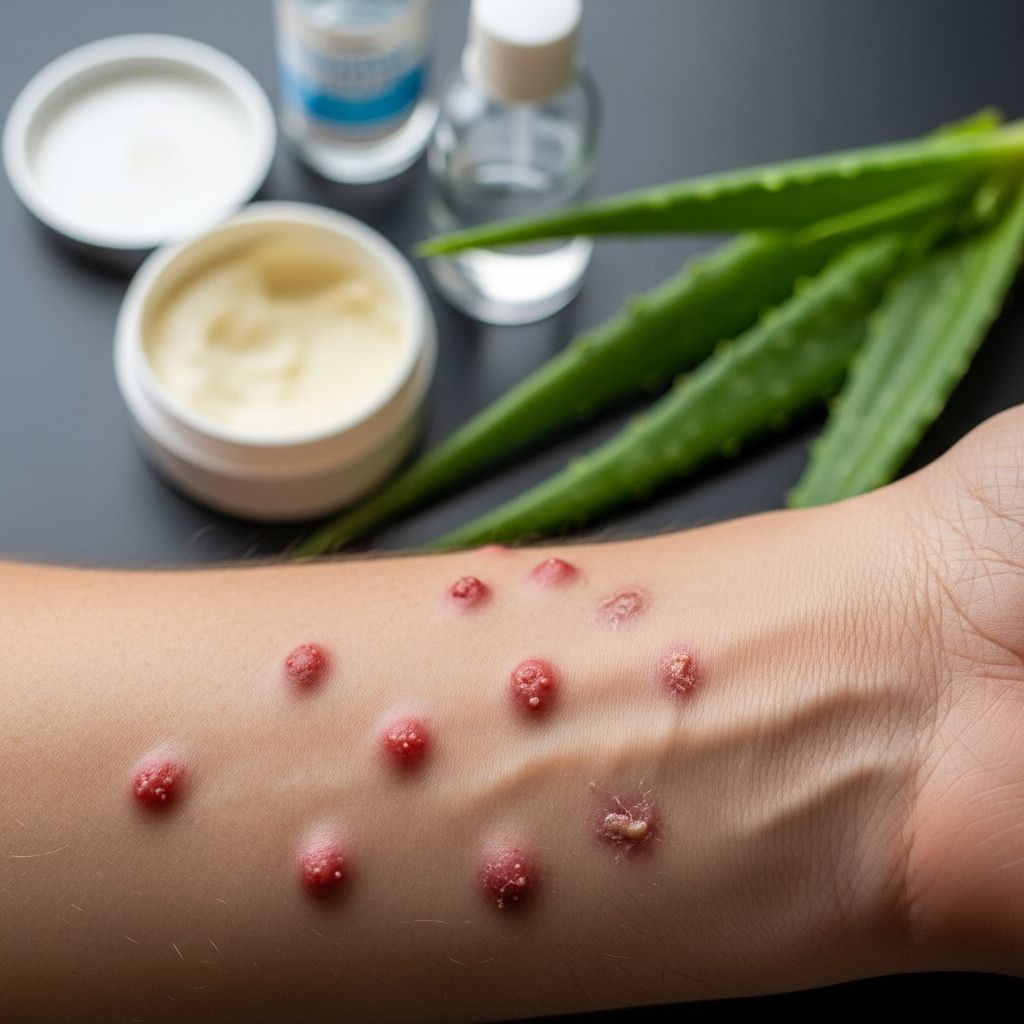Bed Bug Bite Remedies: Treatments and Home Solutions
Effective treatments and home remedies for bed bug bites

Introduction to Bed Bug Bites
Bed bug bites are common household issues, causing discomfort, itching, and sometimes serious reactions. Understanding the symptoms and how to treat them is crucial for effective management. Here’s an in-depth look at bed bug bite remedies and solutions.
Symptoms of Bed Bug Bites
Bed bug bites typically appear as small, red, itchy bumps or welts on the skin. They can occur anywhere on the body but are most common on areas exposed while sleeping, such as arms, legs, and the face. Symptoms can vary from person to person, but common reactions include itching, swelling, and redness.
Remedies for Bed Bug Bites
There are several approaches to treating bed bug bites, ranging from home remedies to medical treatments.
Home Remedies for Bed Bug Bites
Home remedies are often the first line of treatment for bed bug bites. These include:
- Aloe Vera Gel: Known for its soothing properties, aloe vera can help reduce itching and prevent secondary infections.
- Baking Soda and Water: A paste made from baking soda and water can be applied to the affected area to relieve itching.
- Lemon Juice or Witch Hazel: These natural astringents can be used to reduce itching and inflammation.
- Toothpaste: Some people find relief from itching by applying toothpaste, which contains menthol, to the bites.
Medical Treatments for Bed Bug Bites
For more severe reactions or when home remedies are insufficient, medical treatments can provide relief.
- Antihistamines: Oral antihistamines like Benadryl can help reduce itching and swelling. Topical antihistamines are also available but may be less effective for widespread bites.
- Topical Steroids: Creams or ointments containing hydrocortisone can decrease inflammation and itching. For more severe cases, prescription steroids may be recommended.
- Pain Relievers: Over-the-counter pain relievers like ibuprofen can help reduce swelling and pain if the bites are painful.
Preventing Infections from Bed Bug Bites
One of the main risks associated with bed bug bites is the potential for infection, which can occur if the bites are scratched deeply, creating open wounds. To prevent infections:
- Wash with Soap and Water: Regular washing helps prevent infection by keeping the area clean.
- Keep the Area Dry: Moist environments can foster bacterial growth, so it’s essential to keep the affected area dry.
- Avoid Scratching: Scratching can lead to open wounds, which are more susceptible to infection. Applying cold compresses or anti-itch creams can help resist the urge to scratch.
When to See a Doctor
In some cases, bed bug bites may require medical attention. You should consult a doctor if you experience:
- Severe Allergic Reactions: Symptoms such as hives, swelling of the face or throat, or difficulty breathing indicate a severe reaction that needs immediate attention.
- Infections: If bites become infected, they may feel tender, ooze pus, or have red streaks leading away from the bite.
- Large Blisters or Rashes: If bites develop into large blisters or cause significant skin irritation.
Frequently Asked Questions (FAQs)
Q: Are bed bug bites dangerous?
A: Bed bug bites are generally not dangerous but can cause discomfort and, in rare cases, lead to infections or severe allergic reactions.
Q: How long do bed bug bites take to heal?
A: Bed bug bites typically heal on their own within a week to ten days, but it can vary depending on individual reactions.
Q: Can I use antihistamines for bed bug bites on children?
A: Yes, but it’s advisable to consult a pediatrician or pharmacist before giving children antihistamines, as dosages may vary.
Q: How can I prevent bed bugs?
A: Preventing bed bugs involves inspecting second-hand items, using mattress covers, and regularly checking for signs of bed bugs in your home.
Eliminating Bed Bugs
While treating bed bug bites is crucial, eliminating the bed bug infestation is essential for long-term relief. This can involve professional pest control services or using appropriate home treatments like heat, cold, or pesticides.
Bed bug bites, while annoying and uncomfortable, can be effectively managed with the right combination of home remedies and medical treatments. It’s important to address both the symptoms and the underlying cause to ensure a comfortable and bug-free living environment.
References
- https://trustspringer.com/bed-bugs/treatment/what-helps-bed-bug-bites/
- https://www.healthline.com/health/bed-bug-bites
- https://www.goodrx.com/health-topic/environmental/bed-bug-treatment
- https://www.aad.org/public/diseases/a-z/bed-bugs-treatment
- https://www.health.harvard.edu/diseases-and-conditions/bed-bug-bites-how-to-identify-them-get-relief-and-prevent-future-bites
- https://my.clevelandclinic.org/health/diseases/17847-bedbugs
- https://www.columbiadoctors.org/news/what-do-about-bed-bug-bites
- https://www.cdc.gov/bed-bugs/hcp/clinical-care/index.html
Read full bio of Sneha Tete












